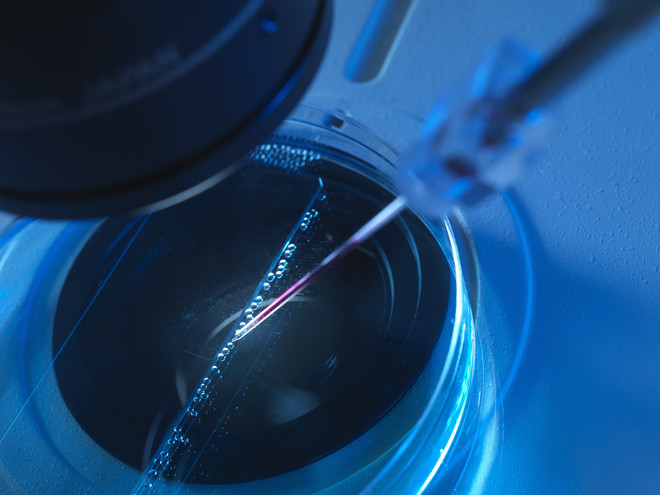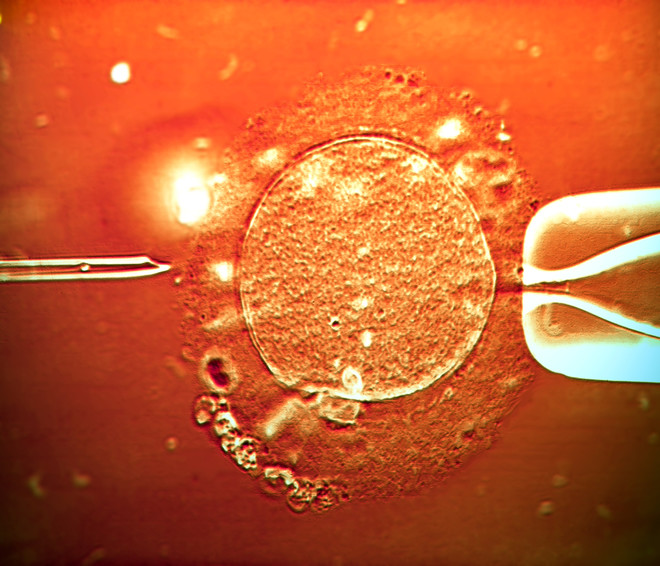How to carry out the procedure?
Embryo transfer is performed after 48 or120 hours after fertilization of eggs by sperm. In some cases, the procedure is performed a little later. It depends on the physiological characteristics of the woman. The exact time and day of IVF is determinedembryologist. Photo: Getty The transplant is performed during ovulation using special equipment - a gynecological catheter. All embryos are in fluid. As soon as it gets into the uterus, the eggs come out of it and attach to the walls. Various experiments have been conducted for a long time regarding how many embryos need to be transplanted. Doctors have established this parameter. They transfer 3-4 embryos into the uterus. This approach to performing artificial insemination has increased its effectiveness. Factors affecting the number of transplanted eggs:
The exact time and day of IVF is determinedembryologist. Photo: Getty The transplant is performed during ovulation using special equipment - a gynecological catheter. All embryos are in fluid. As soon as it gets into the uterus, the eggs come out of it and attach to the walls. Various experiments have been conducted for a long time regarding how many embryos need to be transplanted. Doctors have established this parameter. They transfer 3-4 embryos into the uterus. This approach to performing artificial insemination has increased its effectiveness. Factors affecting the number of transplanted eggs:
- causes of infertility;
- age of the woman;
- the number of attempts at artificial insemination.
At this stage of development of medicine it is possibletransplant not only 3-4 embryos. There is a technique of selective transfer. It is a procedure of fertilization with only one embryo. This makes it possible to avoid multiple pregnancies.
Embryo quality for IVF
When performing artificial inseminationthe doctor must be sure that the egg will develop into a blastocyst. This happens in 80% of cases. In this case, all the rules for the procedure must be followed. The embryo on the third day can reach the blastocyst stage. Therefore, doctors do its implantation during this period. If the embryo stops developing, fertilization will not occur. There are many examples when a woman was implanted with 10 embryos on the third day of cultivation. All of them were of excellent quality. Only on the fifth day of them, only one embryo was suitable for implantation. Doctors believe that the worst time to implant embryos is on the 4th day of cultivation. This period is considered the most critical. During this period, the embryo's own genome is launched. If there are no abnormalities in the chromosomes, the embryo continues to develop. If there are, it dies.
Reasons for canceling embryo implantation
A reproductive specialist can postpone the day of fertilization. The general condition of the body and several other factors are taken into account. Embryo transfer is the final stage of IVF Photo: Getty Reasons for cancellation:
Embryo transfer is the final stage of IVF Photo: Getty Reasons for cancellation:
- The presence of viral diseases. Weakened immunity will not be able to effectively fight to save the egg.
- Ovarian hyperstimulation (OHSS). Manifestation: receiving by the puncture method more than 20 eggs. Also, the presence of shortness of breath, an increase in the size of the abdomen, swelling can serve as a reason to cancel the procedure.
- Endometrial hyperplasia. Its standard size is 9-12 cm. If this figure is exceeded, the effectiveness of fertilization is significantly reduced. It is necessary to undergo a course of treatment.
- Elevated levels of progesterone in the blood. This reduces the likelihood of effective egg grafting. Low progesterone levels. It also affects the outcome of fertilization. To bring the rate of the hormone to normal, prescribe treatment with hormonal drugs.
All causes can be easily eliminated by following certain recommendations and prescriptions from a reproductive specialist.
Preparatory actions for implantation into the uterine cavity
Every woman who is preparing to become a mother with the help of artificial insemination must perform the following actions before embryo transfer:
The attending physician gives each patient advice on preparation.
How to behave after the procedure
The most important thing is that the woman is calm.Nervous stress and worries are contraindicated for her. The effectiveness of the transfer directly depends on the internal state. You should not lift weights or drink alcohol. If any changes in the body are noticed, you should consult a doctor. After the transfer, the patient does not experience any sensations. Sometimes there may be a feeling of heaviness in the lower abdomen. Some women experience implantation bleeding during this period. This is a consequence of damage to the uterine vessels. The discharge is odorless. It has a light pinkish tint. Its volume does not increase. It passes a few hours or days after the embryos are implanted.
Body temperature after the procedure
In isolated cases, an increase is observedbody temperature. This is the body's reaction to the implantation of the egg with the embryo. During this period, a new life is born in the uterus. The female body can prevent this. If the thermometer readings exceed the permissible values, it is necessary to consult with the attending physician.
HCG - pregnancy test
Human chorionic gonadotropin testThe person is taken on the 14th day after the procedure is transferred. Its indicator shows how effective the artificial insemination was. Pregnancy after IVF lasts 9 months.Photo: Getty It should be three-digit. Despite this, in medical practice, even indicators of 5 and 25 mIU/ml indicate that fertilization was successful. If the doctor has doubts, he will prescribe repeat tests in 2-3 days. He may also advise using regular test strips. It will be enough to conduct several such tests. In vitro fertilization makes it possible to effectively treat infertility. Embryo transfer is a complex process. It is performed using special equipment. After it, a woman should treat herself and her health with greater care. After all, a new life will develop inside her. Reproductive doctors give their patients certain recommendations. They will help a woman properly prepare for the procedure.
Pregnancy after IVF lasts 9 months.Photo: Getty It should be three-digit. Despite this, in medical practice, even indicators of 5 and 25 mIU/ml indicate that fertilization was successful. If the doctor has doubts, he will prescribe repeat tests in 2-3 days. He may also advise using regular test strips. It will be enough to conduct several such tests. In vitro fertilization makes it possible to effectively treat infertility. Embryo transfer is a complex process. It is performed using special equipment. After it, a woman should treat herself and her health with greater care. After all, a new life will develop inside her. Reproductive doctors give their patients certain recommendations. They will help a woman properly prepare for the procedure.









